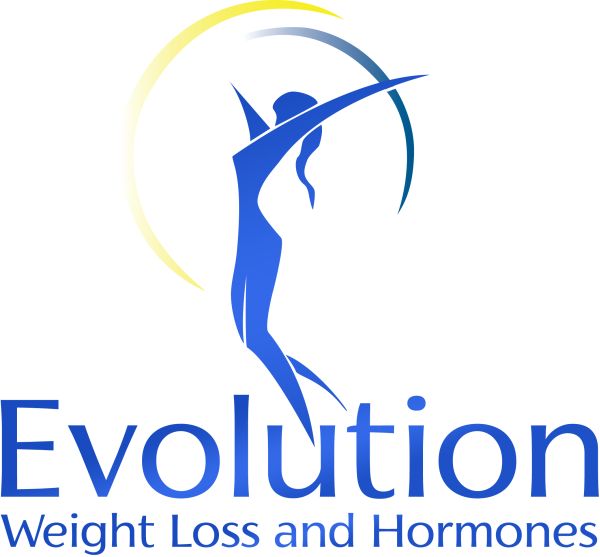Depressive Disorder Treatment in Tarpon Springs, FL

There are several types of depression, which are part of a group called depressive disorders. Depression is characterized by a severe sense of hopelessness, lack of energy, and loss of interest in things you once enjoyed. Though it can affect nearly every aspect of how you function, depression is one of the most treatable psychiatric conditions.
If you are suffering from depression, get help today! Call (813) 536-3212 or contact Erin Bolton online.
What is Depression?
Depression--now called major depressive disorder or major depression--is a condition that can cause profound sadness that interferes with day-to-day activities. Depression is largely thought to be a result of altered levels of serotonin (the chemical responsible for maintaining mood and happiness). Low levels of serotonin can then create dysthymia or major depressive disorder, among other conditions.
There exist various subtypes of depressive disorder:
Major depressive disorder:
Major depressive disorder: This is severe depression, which causes hopelessness, pessimism, profound fatigue , and emotional emptiness that becomes incredibly taxing. Many people with this disorder may self-harm or experience suicidal ideation. With the advent of 2013's Diagnostic and Statistical Manual of Mental Disorders Axis 5 (DSM-5), it is now possible to be diagnosed with major depressive disorder within two months of a loved one's death.
Dysthymia and persistent depressive disorder
As of 2013, dysthymia is no longer a diagnosis. Dysthymia was known as a mild form of depression that occurred on-and-off for at least two years. Those who were once diagnosed with dysthymia are now diagnosed with persistent depressive disorder. Persistent depressive disorder is defined by the DSM-5 as having two or more years of continuous depressive symptoms.
Seasonal depression
Also called seasonal affective disorder (SAD), seasonal depression usually emerges during winter months, or seasons where there is there is less natural light throughout the day. Many individuals who suffer from SAD respond positively to light therapy (or vitamin D supplements), though some may require traditional depression treatments.
Postpartum depression:
Also called seasonal affective disorder (SAD), seasonal depression usually emerges during winter months, or seasons where there is there is less natural light throughout the day. Many individuals who suffer from SAD respond positively to light therapy (or vitamin D supplements), though some may require traditional depression treatments.
Premenstrual dysphoric disorder (PMDD):
In PMDD, emotional instability (affective lability), irritability, depressed mood, and anxiety appear approximately a week before the onset of menstruation.
Psychotic depression:
If symptoms of depression occur alongside delusions and hallucinations--as in the context of a psychotic episode--it is most likely psychotic depression. Experiencing one episode of psychotic depression increases one's chance of developing bipolar disorder.
Bipolar disorder:
Formerly called manic depression, bipolar disorder usually presents with cycles of mood changes, elated mood/mania, and depression. Depending on the type of mania a patient experiences and the speed at which moods cycle occurs, the diagnosis may be:
- Bipolar I disorder, characterized by severe mood episodes from depression to mania
- Bipolar II disorder, characterized by mood episodes from depression to hypomania (less extreme mania)
- Cyclothymic disorder, characterized by milder, more rapidly cycling mood episodes
Symptoms of depression
Almost everyone will experience some feelings of depression at some point in their lives. What makes depression serious--especially major depressive disorder--is the severity and the duration of the following depression symptoms:
- Pervasive and unwavering sadness
- Dulling of sensations
- Hopelessness, despair, and pessimism
- Feelings of low self-worth
- Loss of interest in hobbies
- Low libido and sexual dysfunction
- Feeling as if you're walking in a fog or through a pool of water (cognitive fog)
- Trouble concentrating or other memory problems
- Weight changes, loss or gain
- Irritability, anxiety, or restlessness
- Psychosomatic symptoms like persistent headache , bodily pain, digestive issues, insomnia
- Suicidal thoughts or actions
- Self-harm, often by cutting or burning the skin
- Poor executive function (set of mental skills that help accomplish tasks, e.g. chores and housework)
Depression Treatment
Depression is one of the most treatable psychological disorders, and can usually be addressed with medication and therapy. Several kinds of medications are available that can increase the amount of serotonin in the brain:
- Selective serotonin reuptake inhibitors (SSRIs)
- Serotonin and norepinephrine reuptake inhibitors (SNRIs)
- Monoamine oxidase inhibitors (MAOIs)
Other medications for depression may include:
- Atypical antidepressants, which can affect dopamine, serotonin, or norepinephrine depending on the specific medication
- Tricyclic antidepressants are usually precribed only when other antidepressants have been ineffective, as they tend to cause more side effects like dry mouth, blurred vision, drowsiness, and dizziness
The usual depression treatment plan often includes therapy, particularly cognitive therapy like cognitive behavioral therapy (CBT) or rational emotive behavior therapy (REBT). These therapies are designed to teach more productive, healthy ways of thinking. CBT helps patients identify and change maladaptive thinking patterns and emotional responses, and REBT actively combats what it calls irrational beliefs, which are things that we mistakenly hold true to ourselves and the world.
The usual depression treatment plan often includes therapy, particularly cognitive therapy like cognitive behavioral therapy (CBT) or rational emotive behavior therapy (REBT). These therapies are designed to teach more productive, healthy ways of thinking. CBT helps patients identify and change maladaptive thinking patterns and emotional responses, and REBT actively combats what it calls irrational beliefs, which are things that we mistakenly hold true to ourselves and the world.
Request more information about depressive disorders today. Call (813) 536-3212 or contact Erin Bolton online.
Evolution
Address
4691 Van Dyke RoadLutz, FL 33558
(813) 536-3212
www.evolution4health.com
Hours
Mon:
10:00 am - 4:00 pm
Tue:
10:00 am - 4:00 pm
Wed:
10:00 am - 5:00 pm
Thu:
10:00 am - 6:00 pm
Fri:
10:00 am - 3:00 pm
Sat:
Closed
Sun:
Closed


